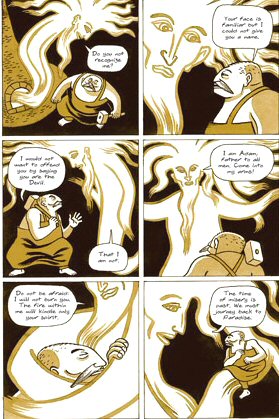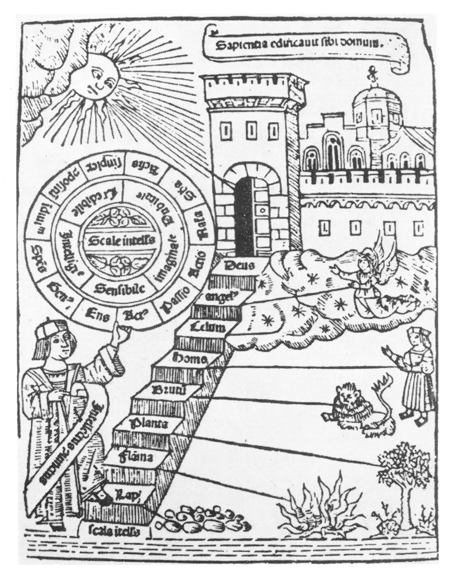I was disappointed in Hofmann’s article on Bernhard, Reger Said, in the LRB, not only because it neglects the most important aspects of Bernhard’s work, but also because it seems to confirm so many preconceptions of him: the angry Austrian endlessly railing at everything, hating the country and its people and life and books and culture and everything. Yes, there is a lot of ranting in some of his books, particularly the one Hofmann is discussing, Old Masters, as well as the contemporaneous Woodcutters, but it is only one side of Bernhard’s work, and it is always contextualized. It is never ranting for its own sake, and the rants are never to be taken completely at face-value, no matter how appealing or justified the target. (And since Hofmann translated Bernhard’s rather rantless early novel Frost, for which I give thanks, he knows there is more.) But if Bernhard were the grumpy caricature Hofmann paints him as, his books would be nowhere near as affecting. So I will interrogate the article to draw out the depths.
Hofmann:
They are sculptures of opinion, rather than contraptions assembled from character interactions. Each book is a curved, seamless rant.
I would say that the seams show, constantly. For all Hofmann makes of how the voices in a Bernhard book merge together into a unity, the constant lurch into the histrionic and the lack of proportion, the way in which a Bernhard narrator will go from attacking Nazis to, say, attacking cheese, makes his rants somewhat less than focused bursts of fury. He is not Karl Kraus and nor is he trying to be. (He’s better.) Extinction is where this agonized self-undermining is most on display. It’s his deepest rant, as the narrator constantly defers dealing with the real monstrousness at hand, a monstrousness for which he feels intensely responsible, by focusing on smaller topics and frivolous insults:
Without the art of exaggeration, I told him, we’d be condemned to an awfully tedious life, a life not worth living. And I’ve developed this art to an incredible pitch, I said. To explain anything properly we have to exaggerate. Only exaggeration can make things clear.
We’re often led to exaggerate, I said later, to such an extent that we take our exaggeration to be the only logical fact, with the result that we don’t perceive the real facts at all, only the monstrous exaggeration. With some, of course, the art of exaggeration consists in understating everything, in which case we have to say that they exaggerate understatement, that exaggerated understatement is their particular version of the art of exaggeration, Gambetti. The art of exaggeration is in fact the secret of all mental endeavor. I now left the Huntsman’s Lodge without pursuing this undoubtedly absurd idea, which would assuredly have proved correct had I developed it.
This is not a focused rant, nor even a curved one, but a looping spiral collapsing inward on itself. Opinion gives way to the very hatred of one’s self for expressing an opinion. To express an opinion is to lower yourself to the level of what you’re attacking, as the narrator of Woodcutters realizes over and over again, not that he can stop. But what can you do?
Hofmann:
Something is being clobbered so hard that we laugh – quite possibly mistakenly, and out of the goodness of our hearts. We’re nervous, we don’t think anyone could say all this and mean it. He means it, all right.
The indefinite antecedents here–“all this,” “it”–are precisely the crux of the issue. He means what? All the exaggerations, the name-callings, the generalizations, the hate? These are not things that one quite means. They are flourishes. The flourishes (here is where the “musicality” of Bernhard’s prose is apt) are all there are, as Bernhard is hellbent on avoiding such meaningful content as argument, logic, evidence, and proof.
And I think all this is fairly evident from Bernhard’s middle period, which isn’t all that rant-filled at all. Correction, which I consider to be his absolute masterpiece, is nothing but the turning-inward that falls on Bernhard’s ranters when they run out of venom. It’s about a man, or several men, who have nowhere to go, and yet are running at full throttle. I don’t think that the hermetic approach that culminated to Correction could possibly have gone any further, so Bernhard was forced to find a new direction, one dealing with the attempted evasions from the hermetic nightmare that consumes the men of Correction.
But the nightmare remains paramount. Odd that Hofmann should mention Nietzsche, one pole of Bernhard’s rhetorical world-view, without mentioning the other: Beckett. Nietzsche was determined to be anything but a nihilist, to be the very greatest non-nihilist there could be, to say “Yes” to life. Though Bernhard grasped Nietzsche’s subversive tricks in his rhetoric and his staged exaggerations, Bernhard would never give that Yes. Hell, Bernhard wrote a book called Yes in which the titular “Yes” is the dubious answer to the question “Will you kill yourself some day?” Hofmann seems to have missed the other pole. Ranting is an affirmation of an opinion. The narrators are in no condition to make affirmations. Their affirmations are empty. They are evading.
The rant is a dodge. If the narrator shuts up for a second, the real wretchedness, the void and the evil and the pain, will come crashing down. And it always does. Philosophically, Bernhard is Schopenhauer, whom Nietzsche exhaustingly rejected for his endless NO.
Hofmann:
The book ends with a cautious stab at a little more of the world: Reger has, ill-advisedly in view of much that has gone before, purchased a couple of theatre tickets, and invites Atzbacher to take in a show with him. It is Kleist’s comedy The Broken Pitcher at the Burgtheater. ‘The performance was terrible,’ Atzbacher notes in the book’s last put-down. It is a real ending, slight but real, no mean feat.
In fact, this is only the denouement, the final punchline. Considered apart from what has gone just before, it is only another insult. But that last put-down comes, crucially, after the veil has briefly fallen and the narrator’s energy has failed him.
A person today is at everyone’s mercy, unprotected, we are dealing today with a totally unprotected person, totally at everyone’s mercy, a mere decade ago people felt more or less protected but today they are exposed to total unprotectedness, Reger said at the Ambassador. They can no longer hide, there is no hiding place left, that is what is so terrible, Reger said, everything has become transparent and thereby unprotected; in other words there is no hope of escape left today, people, no matter where they are, are everywhere hustled and incited and flee and escape and no longer find a refuge to escape to, unless of course they choose death, that is a fact, Reger said, that is the sinister aspect, because the world today is no longer mysterious but only sinister….
The death of my wife has not only been my greatest misfortune, it has also set me free. With the death of my wife I have become free, he said, and when I say free I mean entirely free, wholly free, completely free, if you know, or if at least you surmise, what I mean. I am no longer waiting for death, it will come by itself, it will come without my thinking of it, it does not matter to me when. The death of a beloved person is also an enormous liberation of our whole system, Reger now said.
Old Masters
This is serious stuff. This is not a rant. What follows–the return to the rant, a few more tossed-off insults–is just the evasive engine turning over a few more times, the continuation of the futile effort to will one’s self out of the pain of living. It only further offsets Reger’s prior naked moment. And yet Hofmann ignores that moment. How could he miss it? It’s the wrenched heart of the book. Hofmann only disparages the wife, as though she meant nothing to Reger, when in fact she quite obviously meant everything, a fact Reger tries furiously to ignore, only to finally give up, at least for a moment. It’s as if Bernhard were writing a character named Michael Hofmann but forgot to insert all the self-doubt and self-hatred and sorrow. All the meaning, as it were.


